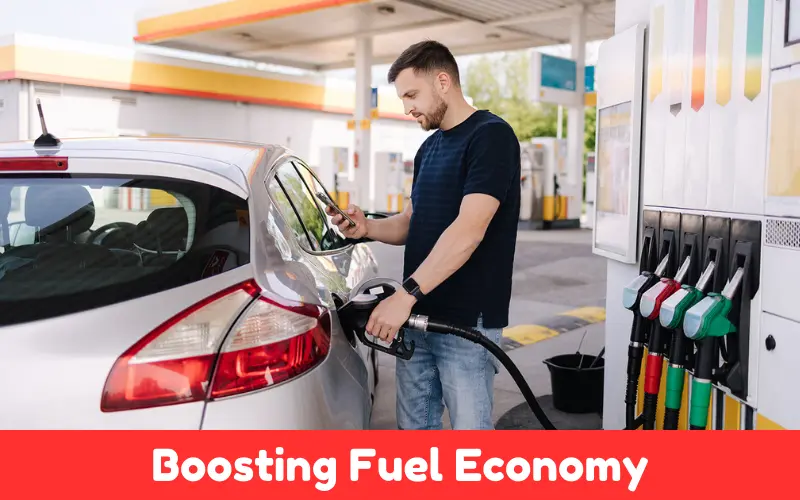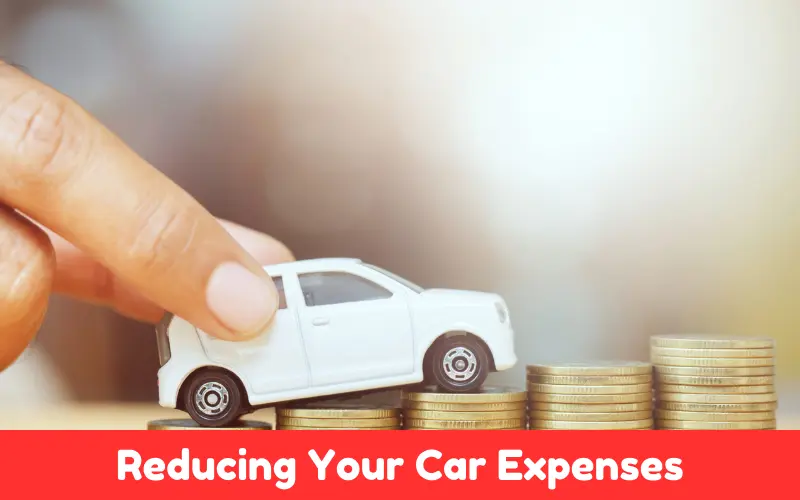Statistics reveal that it costs $10,728 annually to own a car in 2022. They also reveal car and van maintenance costs rose annually by 6.5% while the average cost of car insurance went up more than 20% if moving from January last year to this one.
The numbers make it clear: owning a car isn’t cheap. But there is a great deal that you can do to reduce these costs. Here are four tips for reducing your car expenses.
Article Summary
1. Reduce your Vehicle Insurance
Reducing vehicle insurance costs is one of the easiest ways to save money on a vehicle. There are a few ways to minimize these costs:
- Shopping Around: Auto insurance rates vary greatly from one insurer to the next. So the best thing to do is ring around and get at least three quotes, then compare them all for both price and cover.
- Qualifying for car insurance discounts: Several types of auto insurance discounts can help you combat rising insurance, repair, and fuel costs. Some of the car insurance discounts that you can be eligible for are multi-policy, vehicle safety discounts, driving more than one car at a time, and defensive driver mode.
- Requesting or higher deductibles: While this can save you a ton of money on your insurance, you do need to make sure that there is enough cash put away to pay the deductible if and when a claim comes up.
- Minimize your coverage: Every state has a minimum amount of insurance you must purchase, but many have less. Therefore, check your liabilities and remove unnecessary ones to decrease your insurance premium.
2. Avoid Over-speeding, Hard Braking and Rapid Acceleration
Overspeeding, hard braking and rapid acceleration can also lead your car away from the mileage you wished for. Damages such as overspeeding, hard braking, and rapid acceleration are a big no-no; this greatly affects fuel efficiency.
Over-speeding increases the number of engine combustion cycles needed to cover a given distance in less time, so there is additional use for fuel efficiency. The engine is always using more power to keep up high speeds. Overusing the brake pedal and braking abruptly too frequently burns up more fuel than necessary, lessening your car’s fuel efficiency.
In addition, rapid acceleration after braking will cause your engine to work harder for a quick speedup, which results in more fuel use. Driving at low speed and smooth start/stop slowdown can prevent high fuel costs, leading to less consumer spending on cars.
3. Keep up with Routine Vehicle Maintenance
Maintaining regular maintenance ensures your vehicle remains performing at its best, most efficient state and in a safe manner. This translates into cost savings in the following manner:
- Avoiding substantial repairs: Regular car care will catch many problems early and keep them from becoming large, with one-time repair bills for repurchased parts.
- Boosting vehicle lifespan: Vehicles are expensive investments, and regular maintenance helps you get the most out of them by prolonging their life. Getting them regularly serviced can ensure that all of the components in a vehicle are performing well, therefore ensuring reliability and efficiency for numerous years.
- Boosting Fuel Economy: Regular maintenance includes air filter replacements and oil changes, which are important to your car’s longevity and fuel economy.

- Maintaining auto value: When the time comes to sell, you’ll be prepared with documented proof that this vehicle was well taken care of from Day 1. She said buyers prefer well-preserved vehicles. Moreover, preventative maintenance can save your car’s value on the market as well.
4. Consider Driving Less
You have been spending a lot on gas if you find yourself making more trips than needed. This will only lead to more wear and tear, too—your car is not made for this kind of driving.
Take a look at your driving pattern and schedule, and explore any trips you can combine so that you drive less. You can also taxi drive to and from work as well as other points of interest, thereby reducing the cost of fuel while maintaining low wear and tear on your vehicle.
More Ways To Reduce Car Expenses
- Plan Your Trips Efficiently: Run your errands on the same trip so that you save fuel and extend your family car life. These are just a few of the things businesses can be doing that will help our food system, and driving less would certainly aid in making space, too. Plan your drive to avoid traffic, which also helps!
- Consider Alternative Transportation: Bike or walk for short journeys. This will save you money, have health benefits, and be better for the environment.
- Monitor and Improve Driving Habits with Technology: The vehicle will have technology that monitors your driving and provides you feedback throughout the journey. Platforms such as these can identify places to operate more efficiently, ultimately saving long-term money while identifying when vehicles need preventative maintenance.
End Note
It’s not like owning a vehicle is cheap, so if you aren’t careful, things can get out of hand. Nonetheless, there are several ways to lower the costs of car ownership, like scaling back on auto insurance, not speeding, sticking to regular maintenance, and so much more.

